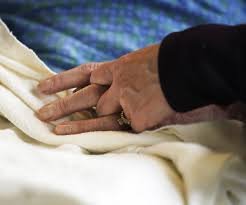A man who says he suffers from chronic and worsening mental health issues is among those launching a court challenge of the federal government’s assisted dying law, which excludes people suffering solely from a mental disorder.
An application filed by Dying with Dignity in Ontario Superior Court on Monday argues that it is discriminatory to bar people with mental disorders from being eligible for an assisted death when it is available to people who suffer physically.
The organization is asking the court to immediately quash the mental-health exclusion.Plaintiff John Scully said going to court is his last hope.
No medication, treatment or therapy has eased the post-traumatic stress disorder the former war correspondent suffers from, along with depression and anxiety. All are made worse by sleep deprivation.“In the last 36 hours, I’ve had four hours (of) sleep,” he said in a recent interview. “And the sleep is polluted with nasty, vicious nightmares.”
At 83, Scully said his condition is worsening by the day, not only mentally but physically.“I feel it’s incumbent on me to rattle whatever cage I can, to say, not ‘Look at me,’ but ‘Look at us.’ For God’s sake. Do something about it.”
The Liberal government announced in February it would delay a planned expansion to the assisted-dying regime that would have allowed people with mental disorders to be considered starting in March. The expansion has been delayed until 2027.
The government cited readiness concerns from provinces and outstanding questions from psychiatrists about how clinicians could determine whether someone’s mental illness could be cured.
Dying with Dignity, Scully and a third plaintiff, Claire Elyse Brosseau, argue the mental-health exclusion violates Section 7 of the Canadian Charter of Rights and Freedoms, which says people have the right to life, liberty and security.“There is no constitutional justification for the prolongation of the enduring and intolerable suffering of those Canadians who are eligible for MAID but for the mental-illness exclusion,” the documents state.
The filing argues people with severe and incurable mental disorders have been deprived of their security, forced instead to endure prolonged suffering, and the liberty to make the deeply personal decision to end their life.

